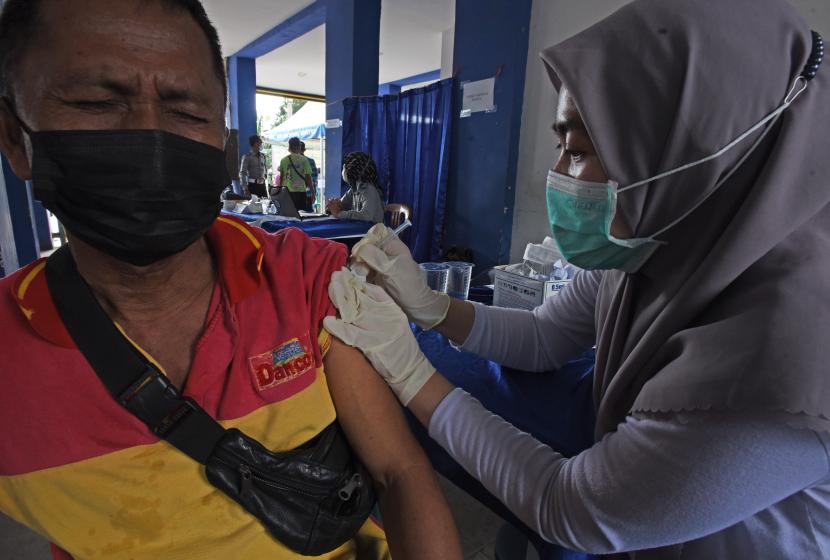There are still many people who have not received the first and second complete doses of the vaccine
REPUBLIKA.CO.ID, JAKARTA — Senior Advisor on Gender and Youth Affairs to the Director General of the World Health Organization (WHO) Diah Saminarsih recommended that the Indonesian government should prioritize full-dose Covid-19 vaccination rather than implementing a plan to provide boosters.booster) dose. This is because there are still many people who have not received the first and second complete doses of the vaccine.
“The coalition does not refuse booster but we want justice in providing access to vaccines for all. The important vaccine is the complete dose that must be available for all people, then talk about booster,” Diah said while speaking at a virtual conference themed Delay Booster, Prioritize Full Dose Vaccines for All, Friday (17/12).
Diah judge, plan booster what the current government provides is too fast and could widen the gap. This is because the supply of the Covid-19 vaccine is still not sufficient. So, what should be prioritized are those who have not received the first and second doses as well as people in certain groups who need them, such as elderly people over 65 years who need the third dose.
According to Diah, technically there are certain people or groups who need three doses, such as the elderly over 65 years. However, he reminded the public in general it takes two doses. He is worried that if the policy booster vaccines are administered too soon or at the wrong time, allowing for a wider gap.
“Because currently there are still around 50 percent of the Indonesian population who have not received the first dose and the second dose (complete dose). So, priority must be given to them first (the target who has not been fully vaccinated), and then give booster,” said the woman who also founded the CISDI health sector non-governmental organization.
If inequality widens, Diah said, virus mutations could occur. That is, new variants of the virus exist because of inequality in access to vaccines. The unevenness of this vaccination makes the opportunity for the virus to continue to mutate. He gave an example, the omicron variant was first discovered in South Africa and came from someone infected with HIV. Then, the mutation continues uncontrollably and finally an omicron appears.
Moreover, he continued, vaccination coverage in African countries is only about 8 percent of the entire population. He admits that many other countries have 70 to 90 percent of the vaccine rate and Indonesia’s around 50 percent. However, he warned that it did not rule out the possibility of Omicron or other virus mutations moving to other countries. “Omicron exists in 61 countries and this vaccine imbalance is the main cause,” he said.
Then, if the policy of overcoming mutations is booster If it is too early, this can open up the Covid-19 vaccination gap that continues to occur and the mutation of the virus will not stop. He recommended from a global perspective to give vaccines to countries with less vaccination coverage. Then, in each of these countries, they must ensure that they get a complete dose of vaccine, especially for the elderly over 65 years to get three doses according to the recommendations of the WHO epidemiological group.
So, this complete vaccine should be pursued first. This is no problem booster“But there are mutations like Omicron that keep happening because of the imbalance (in giving the vaccine),” he said.
Diah asked that what must be resolved is inequality. This is done by prioritizing giving the complete first and second dose, even the third dose needed for certain population groups.
– .


